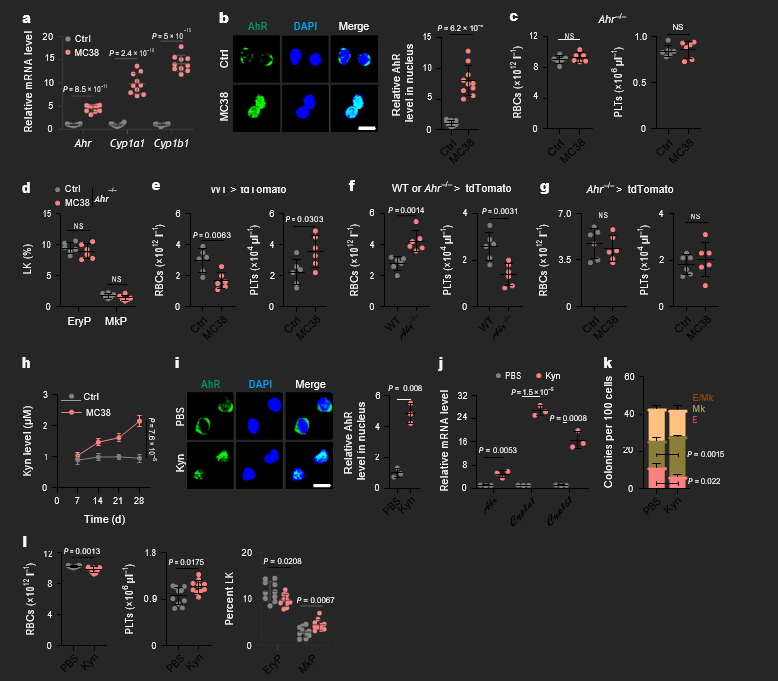In December 2023, a study led by Professor Bo Huang and his team from the Institute of Basic Medical Sciences, Chinese Academy of Medical Sciences, was published in the prestigious international academic journal Nature Immunology(IF=31.25). The research, titled "Tumor cell-released kynurenine biases MEP differentiation into megakaryocytes in individuals with cancer by activating AhR-RUNX1," revealed a novel mechanism by which tumor cell-released kynurenine induces the differentiation of MEP (megakaryocyte-erythroid progenitor) into megakaryocytes. This study provides a potential therapeutic target for managing hematologic abnormalities in individuals with cancer. The research was also recently selected as one of the "Top Ten Advances in Hematology in China in 2023."
Thrombocytosis and erythrocytopenia are common hematological abnormalities observed in individuals with advanced cancer. However, the underlying molecular mechanisms for these conditions remain largely unknown. In this study, we aimed to investigate the role of tumor cell-released kynurenine (Kyn) in the differentiation of megakaryocytic-erythroid progenitor cells (MEPs) and its implications in thrombocytosis and erythrocytopenia.
We utilized both in vivo and in vitro models to study the effects of Kyn on MEP differentiation. Mouse models with tumor growth were established using MC38 colon cancer cells and E0771 breast cancer cells. MEPs were isolated from these mice and analyzed for changes in differentiation into megakaryocytes and erythrocytes. In addition, MEPs from healthy individuals and individuals with cancer were examined to validate the findings in human samples.

Our results demonstrate that tumor cell-released Kyn biases MEP differentiation into megakaryocytes by activating the aryl hydrocarbon receptor (AhR)-Runt-related transcription factor 1 (RUNX1) axis. Kyn, when released into the periphery, is taken up by MEPs through the transporter SLC7A8. In the cytosol, Kyn binds to and activates AhR, leading to its translocation to the nucleus where it transactivates RUNX1. Activated AhR also upregulates SLC7A8 expression in MEPs, creating a positive feedback loop. This Kyn-AhR-RUNX1 axis was confirmed in both mouse models and human samples, providing potential strategies for the prevention of thrombocytosis and erythrocytopenia in individuals with cancer.
Our study reveals a novel mechanism by which tumor cell-released Kyn biases MEP differentiation into megakaryocytes, leading to thrombocytosis and erythrocytopenia in individuals with cancer. The identification of this pathway provides potential therapeutic targets for managing hematological abnormalities in cancer patients.


